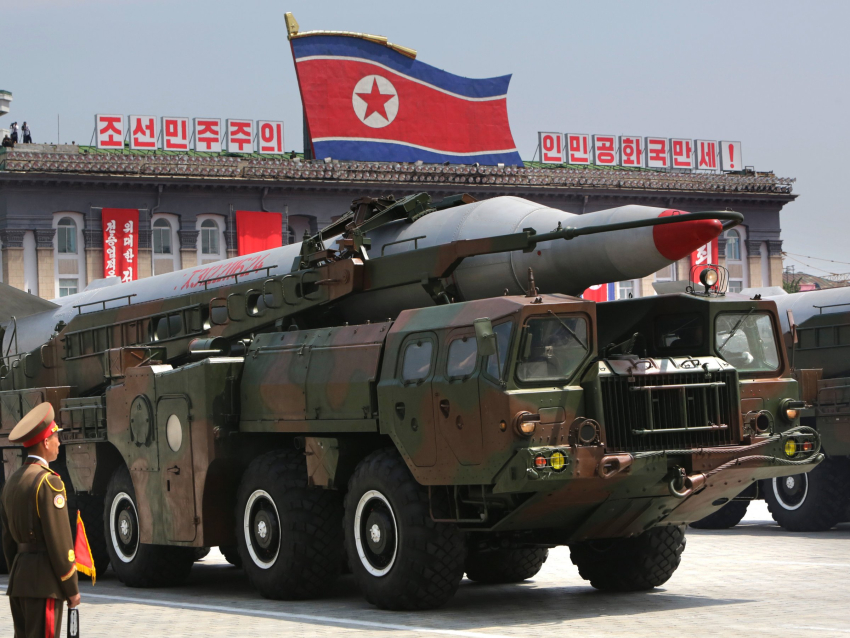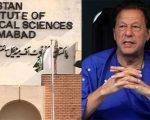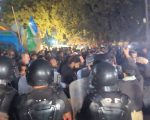When North Korea tested its hydrogen bomb on January 7, 2016, the obvious question for much of the world was about its delivery system of shorter range. At the time, South Korea and Japan were in Kim Jong Un’s gun sight. Diplomacy failed and sanctions further hardened Pyongyang’s position ever more. Last week, the world’s last remaining communist state tested its second intercontinental ballistic missile for a base only 50 kilometres from neighbouring China. The projectile can reach most of the mainland US if fired in low trajectory.
A year prior to its ICBM launches, North Korea had demonstrated its technological niche earlier perfected by a select few i.e. the US, Russia, China, Britain, India, Israel and perhaps France. Despite possessing the capability, Islamabad remains the only known nuclear weapon state not have tested a thermonuclear device.
Being signatory to Nuclear Non-Proliferation Treaty, North Korea’s belligerence serves as a model for a set of defiant and disruptive countries such as Iran. Pyongyang’s journey towards nuclearization began in the 1990s. It boasted its nuclear muscle by testing three plutonium devices in 2006 while topping it up by exploding a hydrogen bomb, also called a thermonuclear bomb. Hydrogen bomb is a two-in-one device that packs both nuclear fission and fusion to result in colossal explosive energy far higher than same-sized nuclear device
As the UN Security Council unanimously slapped further sanctions, the North Korean leader singled out America as his favorite target. Pyongyang may never use nuclear weapons against South Korea or the US as the country’s deterrence is aimed at maximizing the cost of war for its enemies. Like it or not, Kim has successfully conveyed the message and exhibited the intent.
Earlier in February and May, Kim witnessed a test of mid-range missiles powered by solid fuel, an advancement promising better mobility and performance of the delivery system. Some analysts believe that the North has completed the triad by altering submarine’s torpedo tubes to launch nuclear-tipped missiles. Though unusual and exceptional submarine activity is proven, no testing of submarine-launched ballistic missile (SLBM) or a submarine-launched cruise missile (SLCM) has occurred or been claimed so far.
Due to the weak diplomatic will of George W Bush and Barack Obama, the Korean peninsula has transformed into a theatre of likely nuclear war. President Trump has neither shown the will to resolve the crisis diplomatically nor has a coherent strategy to defang the hermit state militarily.
The recent developments have only enhanced South Korea and Japan’s uneasiness regarding their defense arrangement with the United States. Marginalizing their economic and technological might, impoverished North Korea has achieved a decisive upper hand by tripping the balance of power.
Preempting such far-reaching potential advances, Japanese Prime Minister Shinzo Abe’s cabinet reinterpreted the country’s passive constitution by allowing the executive to exercise the right to “collective self-defense.” For Tokyo, Pyongyang is part of the larger security dilemma, which arises due to surging military might of China. Japan’s relations with South Korea are anything but cordial. The precarious balance both struggle to strike got a hit after Japan rewrote its defense doctrine. Seoul’s alarming tone echoed from its historical experience. Nonetheless, Land of the Rising Sun is jointly developing submarines with Australia besides shopping and developing sophisticated military hardware, with its version of F-35 and helicopter being two obvious examples. Technically, Tokyo is still bound by its post-WWII sanctions.
So North Korea wants to settle scores with the South while testing Trump’s resolve and leadership. Japan is re-arming itself to deal with China and also North Korea. South Korea is deeply concerned with North’s belligerence and brinkmanship while being weary of Japan’s heightening military prowess. Beijing no more sees eye to eye with Pyongyang on military matters and favors sanctions against her. Like Pakistan won’t favor a nuclear Iran, China can’t afford a disruptive neighbor with the deadliest technology. Washington mistakenly believes that Beijing can talk its neighbor into quitting nuclear weapons. Though Russia backs UNSC curbs on North Korea, it is amused by Kim’s unruly role in the Southeast that has largely remained America’s sphere of influence since WWII.
The post-War global order has become archaic in way more than one. Nuclear proliferation treaty is being challenged at will and with impunity. The Middle East is seeing uprisings, and tribal and sectarian militancy far more potent than civil wars of the Cold War-era. Washington is failing to arrest its diminishing superpower projection while Moscow relying on disruption than scientific advancement and constructive cooperation. China believes that strengthening its military ensures free access to trading routes and raw material supplies. Beijing anchors its power projection in economic might than military muscle. In conclusion, the post-Cold War era is over. The world is witnessing the evolution of a new order, which won’t emerge without disruption and realignment.
The public opinion has swung further in favor of nuclearization of South Korea and Japan than the last year. Fortunately, none of the two would opt for deterrent without formally quitting the NPT. If the multilateral agreement can’t be enforced for one or more [North Korea and Iran], then why may the rest care?
Their differences aside, America, Russia, China, UK and France – the big five – have not abandoned their consensus for nuclear non-proliferation. Yet, North Korea poses a unique challenge: it’s the only NPT signatory to show off its nuclear and hydrogen bombs. Iran, its close ally, is watching the developments with keen interest. Thus, countries like Norway, Switzerland or Canada may have to take the lead in engaging stroppy Korea to exercise restraint. After China’s decision to end the import of North Korean coal, the sanction may help sink the harsh realities in Pyongyang well, for once.














